- Home
- Alexandre Dumas
The Mesmerist's Victim Page 3
The Mesmerist's Victim Read online
Page 3
CHAPTER III.
THE RESTORATION.
While the thousand casualties were precipitated upon each other, BaronTaverney escaped all the dangers by some miracle.
An old rake, and hardened in cynicism, he seemed the least likely to beso favored, but he maintained himself in the thick of a cluster by hisskill and coolness, while incapable of exerting force against thedevouring panic. His group, bruised against the Royal Storehouse, andbrushed along the square railings, left a long trail of dead and dyingon both flanks but, though decimated, its centre was kept out of peril.
As soon as these lucky men and women scattered upon the boulevard, theyyelled with glee. Like them, Taverney found himself out of harm's reach.During all the journey, the baron had thought of nobody but his nobleself. Though not emotional, he was a man of action, and in great crisessuch characters put Caesar's adage into practice--Act for yourself. Wewill not say he was selfish but that his attention was limited.
But soon as he was free on the main street, escaped from death andre-entering life, the old baron uttered a cry of delight, followed byanother of pain.
"My daughter," he said, in sorrow, though it was not so loud as theother.
"Poor dear old man," said some old women, flocking round ready tocondole with him, but still more to question.
He had no popular inclinations. Ill at ease among the gossips he made aneffort to break the ring, and to his credit got off a few steps towardsthe square. But they were but the impulse of parental love, never whollydead in a man; reason came to his aid, and stopped him short.
He cheered himself with the reasoning that if he, a feeble old man hadstruggled through, Andrea, on the strong arm of her brave and powerfulbrother, must have likewise succeeded. He concluded that the two hadgone home, and he proceeded to their Paris lodging, in Coq-Heron street.
But he was scarcely within twenty paces of the house, on the streetleading to a summerhouse in the gardens, where Philip had induced afriend to let them dwell, when he was hailed by a girl on the threshold.This was a pretty servant maid, who was jabbering with some women.
"Have you not brought Master Philip and Mistress Andrea?" was hergreeting.
"Good heavens, Nicole, have they not come home?" cried the baron, alittle startled, while the others were quivering with the thrill whichpermeated all the city from the exaggerated story of the first fugitivesspreading.
"Why, no, my lord, no one has seen them."
"They could not come home by the shortest road," faltered the baron,trembling with spite at his pitiful line of reasoning falling to pieces.
There he stood, in the street, with Nicole whimpering, and an old valet,who had accompanied the Taverneys to town, lifting his hands to the sky.
"Oh, here comes Master Philip," ejaculated Nicole, with inexpressibleterror, for the young man was alone.
He ran up through the shades of evening, desperate, calling out as soonas he saw the gathering at the house door:
"Is my sister here?"
"We have not seen her--she is not here," said Nicole. "Oh, heavens, mypoor young mistress!" she sobbed.
"The idea of your coming back without her!" said the baron with angerthe more unfair as we have shown how he quitted the scene of thedisaster.
By way of answer he showed his bleeding face and his arm broken andhanging like a dead limb by his side.
"Alas, my poor Andrea," sighed the baron, falling, seated on a stonebench by the door.
"But I shall find her, dead or alive," replied the young man gloomily.
And he returned to the place with feverish agitation. He would havelopped off his useless arm, if he had an axe, but as it was, he tuckedthe hand into his waistcoat for an improvised sling.
It was thus we saw him on the square, where he wandered part of thenight. As the first streaks of dawn whitened the sky, he turnedhomeward, though ready to drop. From a distance he saw the same familiargroup which had met his eyes on the eve. He understood that Andrea hadnot returned, and he halted.
"Well?" called out the baron, spying him.
"Has she not returned? no news--no clew?" and he fell, exhausted, on thestone bench, while the older noble swore.
At this juncture, a hack appeared at the end of the street, lumbered up,and stopped in front of the house. As a female head appeared at thewindow, thrown back as if in a faint, Philip, recognizing it, leapedthat way. The door opened, and a man stepped out who carried Andrea deTaverney in his arms.
"Dead--they bring her home dead," gasped Philip, falling on his knees.
"I do not think so, gentlemen," said the man who bore Andrea, "I trustthat Mdlle. de Taverney is only fainted."
"Oh, the magician," said the baron, while Philip uttered the name of"the Baron of Balsamo."
"I, my lord, who was happy enough to spy Mdlle. de Taverney in the riot,near the Royal wardrobe storehouse."
But Philip passed at once from joy to doubt and said:
"You are bringing her home very late, my lord."
"You will understand my plight," replied Balsamo without astonishment."I was unaware of the address of your sister, though your father callsme a magician, kindly remembering some little incidents occurring atyour country-seat. So I had her carried by my servants to the residenceof the Marchioness of Savigny, a friend who lives near the RoyalStables. Then this honest fellow--Comtois," he said, waving a footman inthe royal livery to come forward, "being in the King's household andrecognizing the young lady from her being attendant of the Dauphiness,gave me this address. Her wonderful beauty had made him remark her onenight when the royal coach left her at this door. I bade him get uponthe box, and I have the honor to bring to you, with all the respect shemerits--the young lady, less ill than she may appear."
He finished by placing the lady with the utmost respect in the hands ofNicole and her father. For the first time the latter felt a tear on hiseyelid, and he was astonished as he let it openly run down his wrinkledcheek.
"My lord," said Philip, presenting the only hand he could use toBalsamo, "You know me and my address. Give me a chance to repay theservices you have done me."
"I have merely accomplished duty," was the reply. "I owed you for thehospitality you once favored me at Taverney." He took a few paces todepart, but retracing them, he added: "I ask pardon; but I wasforgetting to leave the precise address of Marchioness Savigny; shelives in Saint Honore Street, near the Feuillant's Monastery. This issaid in case Mdlle. de Taverney should like to pay her a visit."
In this explanation, exactness of details and accumulation of proofs,the delicacy touched the young lord and even the old one.
"My daughter owes her life to your lordship," said the latter.
"I am proud and happy in that belief," responded Balsamo.
Followed by Comtois, who refused the purse Philip offered, he went tothe carriage and was gone.
Simultaneously, as if the departure made the swooning of Andrea cease,she opened her eyes. For a while she was dumb, and stunned, and her lookwas frightened.
"Heavens, have we but had her half restored--with her reason gone?" saidPhilip.
Seeming to comprehend the words, Andrea shook her head. But she remainedmute, as if in ecstasy. Standing, one of her arms was levelled in thedirection in which Balsamo had disappeared.
"Come, come, it is high time our worry was over," said the baron. "Helpyour sister indoors my son."
Between the young gentleman and Nicole, Andrea reached the rear house,but walked like a somnambulist.
"Philip--father!" she uttered as speech returned to her at last.
"She knows us," exclaimed the young knight.
"To be sure I know you; but what has taken place?"
Her eyes closed in a blessed sleep this time, and Nicole carried herinto her bedroom.
On going to his own room, Captain Philip found a doctor whom the valetLabrie had sent for. He examined the injured arm, not broken butdislocated, and set the bone. Still uneasy about his sister, he took themedical man to h
er bedside. He felt her pulse, listened to her breathingand smiled.
"Her slumber is calm and peaceful as a child's," he said. "Let her sleepon, young sir, there is nothing more to do."
The baron was sound asleep already assured about his children on whomwere built the ambitious schemes which had lured him to the capital.

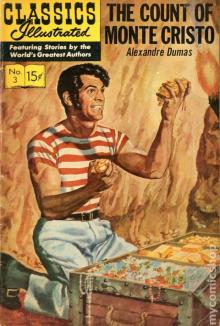 The Count of Monte Cristo, Illustrated
The Count of Monte Cristo, Illustrated Knight of Maison-Rouge
Knight of Maison-Rouge![The Three Musketeers - Alexandre Dumas - [Full Version] - (ANNOTATED) Read online](http://i1.bookreadfree.com/14/the_three_musketeers_-_alexandre_dumas_-_[full_version]_-_annotated_preview.jpg) The Three Musketeers - Alexandre Dumas - [Full Version] - (ANNOTATED)
The Three Musketeers - Alexandre Dumas - [Full Version] - (ANNOTATED)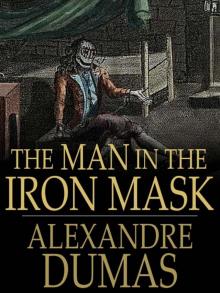 The Man in the Iron Mask
The Man in the Iron Mask The Count of Monte Cristo (Penguin Classics eBook)
The Count of Monte Cristo (Penguin Classics eBook) Count of Monte Cristo (abridged) (Barnes & Noble Classics Series)
Count of Monte Cristo (abridged) (Barnes & Noble Classics Series) The Women's War
The Women's War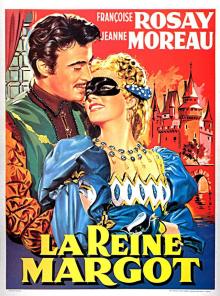 La reine Margot. English
La reine Margot. English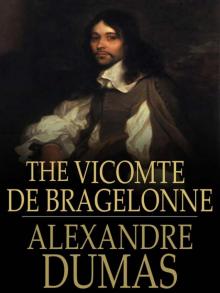 The Vicomte de Bragelonne
The Vicomte de Bragelonne__english_preview.jpg) La dame aux camélias (Novel). English
La dame aux camélias (Novel). English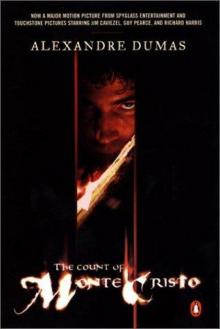 The Count of Monte Cristo
The Count of Monte Cristo Balsamo, the Magician; or, The Memoirs of a Physician
Balsamo, the Magician; or, The Memoirs of a Physician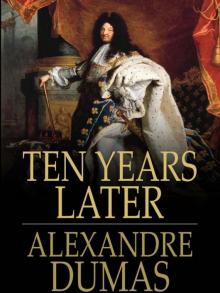 Ten Years Later
Ten Years Later The Romance of Violette
The Romance of Violette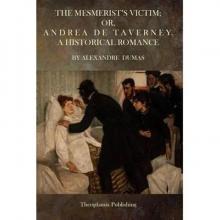 The Mesmerist's Victim
The Mesmerist's Victim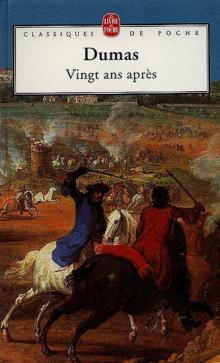 Vingt ans après. English
Vingt ans après. English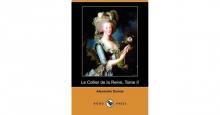 Le collier de la reine. English
Le collier de la reine. English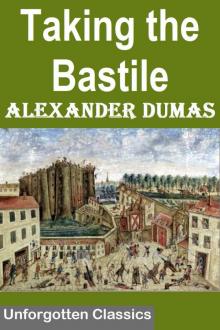 Taking the Bastile; Or, Pitou the Peasant
Taking the Bastile; Or, Pitou the Peasant The Hero of the People: A Historical Romance of Love, Liberty and Loyalty
The Hero of the People: A Historical Romance of Love, Liberty and Loyalty Louise de la Valliere
Louise de la Valliere Les Quarante-cinq. English
Les Quarante-cinq. English Ange Pitou (Volume 1)
Ange Pitou (Volume 1) The Royal Life Guard; or, the flight of the royal family.
The Royal Life Guard; or, the flight of the royal family.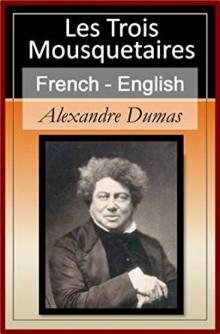 Les trois mousquetaires. English
Les trois mousquetaires. English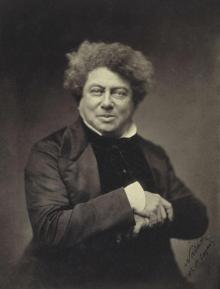 Une fille du régent. English
Une fille du régent. English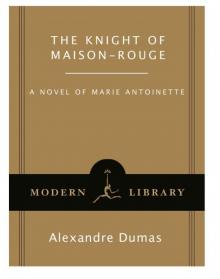 The Knight of Maison-Rouge
The Knight of Maison-Rouge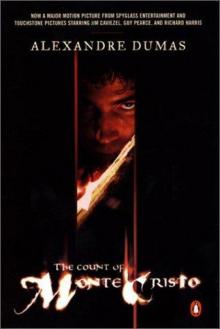 The Count of Monte Cristo (Unabridged Penguin)
The Count of Monte Cristo (Unabridged Penguin) Ange Pitou
Ange Pitou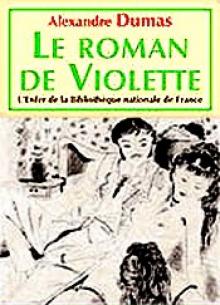 The Romance of Violette (vintage erotica)
The Romance of Violette (vintage erotica)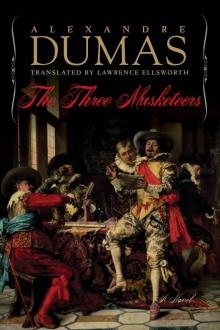 The Three Musketeers
The Three Musketeers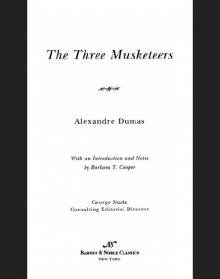 Three Musketeers (Barnes & Noble Classics Series)
Three Musketeers (Barnes & Noble Classics Series) Georges
Georges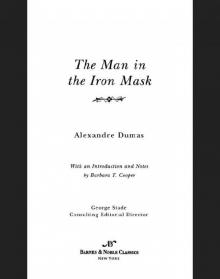 Man in the Iron Mask (Barnes & Noble Classics Series)
Man in the Iron Mask (Barnes & Noble Classics Series)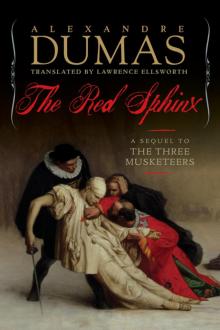 The Red Sphinx
The Red Sphinx